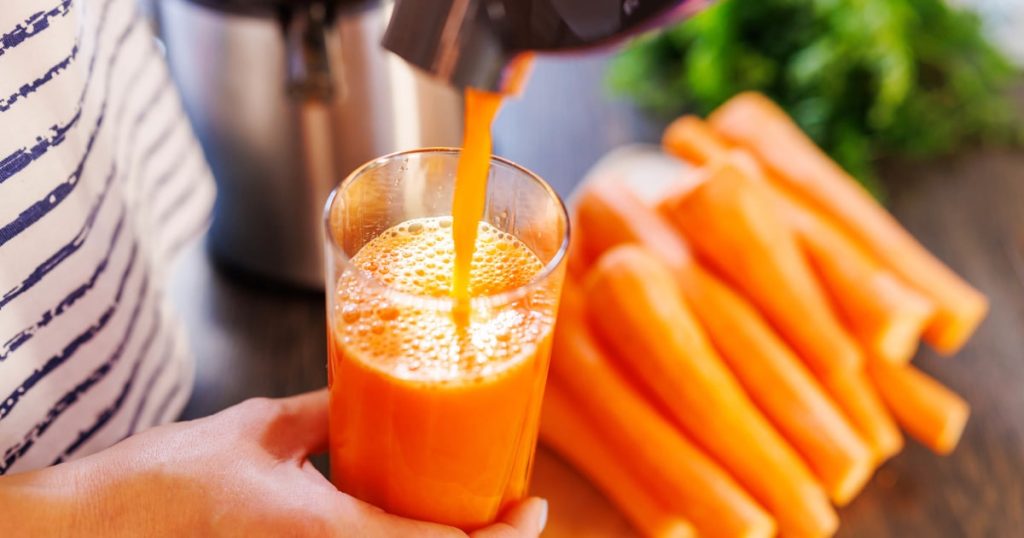Carrot juice is rich in vitamins and minerals, making it a popular drink for those seeking to boost their nutrient intake. However, dietitians warn that while carrot juice offers benefits, it may not be the best way to consume the healthy nutrients found in carrots due to its high sugar content. One cup of canned carrot juice contains 94.4 calories, 9.23 grams of sugar, and 1.89 grams of fiber.
Juicing carrots provides a concentrated source of nutrients found in carrots, as it takes a larger quantity of carrots to make one glass of juice than one would normally consume in a sitting. Carrot juice is particularly high in beta-carotene, a precursor to vitamin A, which can support vision, immune system, and heart health. A 2011 study showed that participants who drank 16 ounces of carrot juice daily experienced minor improvements in blood pressure, potentially reducing their risk of heart disease and inflammatory diseases.
One downside of juicing carrots is the loss of fiber during the juicing process, as the pulp contains most of the fiber found in whole carrots. Additionally, consuming a large dose of vitamin A, found abundantly in carrot juice, may not be necessary as the body stores excess vitamin A in fat. Therefore, consuming fat alongside vitamin A is necessary for optimal absorption. Ultimately, consuming whole carrots may provide more fiber but less beta-carotene, depending on individual nutritional goals.
Consuming large amounts of carrot juice may cause the skin to turn orange due to carotenemia, a condition resulting from excessive beta-carotene consumption. While this condition is temporary and harmless, it may indicate a need to diversify the diet. Drinking excessive carrot juice could also potentially lead to vitamin A toxicity, particularly in children who are more sensitive to high vitamin A levels. It is important to ensure that carrot juice consumption is moderate to prevent such risks.
When purchasing pre-made carrot juice, it is essential to choose 100% juice options to avoid added sugars. Mixing carrots with other healthy ingredients like beets, ginger, greens, or lemon can enhance the nutrient content and flavor of the juice. The recommended daily intake of carrot juice is around 4 to 5 ounces, as it contains significant sugar with less fiber than whole carrots. Moderation in carrot juice consumption is key to reaping its benefits without the risks of sugar overload or vitamin toxicity.













